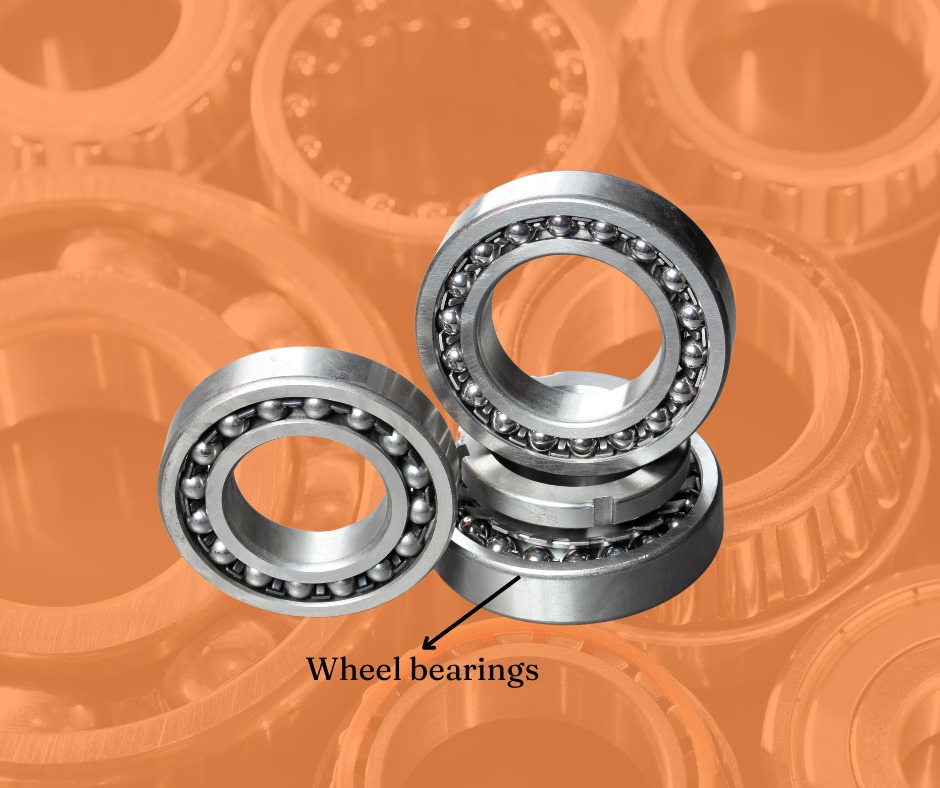Signs of Wheel Hub Bearing Failure You Shouldn't Ignore

Discover the critical warning signs of wheel hub bearing failure that could save your vehicle from costly damages.
Understanding Wheel Hub Bearings and Their Role in Vehicle Safety
Wheel hub bearings play a pivotal role in the smooth operation and safety of your vehicle. They are responsible for allowing your car's wheels to turn freely, reducing friction, and supporting the weight of the vehicle. When functioning properly, they're integral in maintaining handling stability and ride comfort. However, when they fail, they can lead to a range of problems that can compromise vehicle safety and performance.
It's essential to understand the signs of wheel hub bearing failure to address any issues promptly. Recognizing these symptoms early can prevent more severe damage to your vehicle and ensure your safety on the road.
Unusual Noises: The First Red Flags
One of the most common and noticeable signs of wheel hub bearing failure is an unusual noise coming from the wheels. This noise may sound like a grinding, humming, or growling and typically increases with the vehicle's speed. It's often mistaken for tire noise, but it's crucial to distinguish it as it indicates the need for an immediate check-up.
Ignoring these sounds can lead to more significant issues, as the bearings are essential for wheel alignment and stability. If you hear such noises, especially when turning or driving at specific speeds, it's time to have your bearings inspected by a professional.
Steering Troubles and Wobbly Wheels: Direct Indicators of Bearing Issues
Problems with steering or feeling like your wheels are wobbling are direct indicators of potential bearing issues. A failing wheel hub bearing can cause the steering to feel loose or unresponsive, particularly at higher speeds. You might also notice that your vehicle pulls to one side when you're driving, which can be a tell-tale sign of bearing deterioration.
Additionally, if your wheels feel wobbly or you can shake them when parked, it's a strong indication that the bearings are not holding the wheels securely and may be failing. This looseness can be dangerous, so it's critical to have your bearings checked and replaced if necessary.
How ABS Performance Can Signal Bearing Failures
Modern vehicles are equipped with Anti-lock Braking Systems (ABS) that rely on sensors which can be affected by wheel hub bearings. Worn or failing bearings can cause the ABS sensor to malfunction, leading to ABS warning lights on the dashboard or an overall decrease in braking performance.
If you notice any issues with your ABS, such as the ABS light turning on or the brakes not responding as they should, it could be related to a bearing problem. Bearings in poor condition can disrupt the sensor's ability to accurately read wheel speed, which is critical for the ABS to function correctly.
Preventive Measures and Timely Replacements: Protecting Your Wheel Bearings
Regular maintenance and inspections are the best preventive measures to protect your wheel bearings from failure. Listening to your vehicle and addressing any unusual noises or changes in handling can help you identify issues early on. Additionally, having your wheel bearings checked during routine maintenance can catch problems before they worsen.
When it comes to bearing replacement, it's crucial to address the issue promptly to avoid further damage to your vehicle's wheel system. Timely replacements can save you from more costly repairs down the line and ensure your safety while driving. Remember, when it comes to wheel bearings, it's always better to be proactive rather than reactive.
Drop us a message from our facebook page or Chat us using the widget on the right to order wheel hub bearings for your car

 Loading..
Loading..